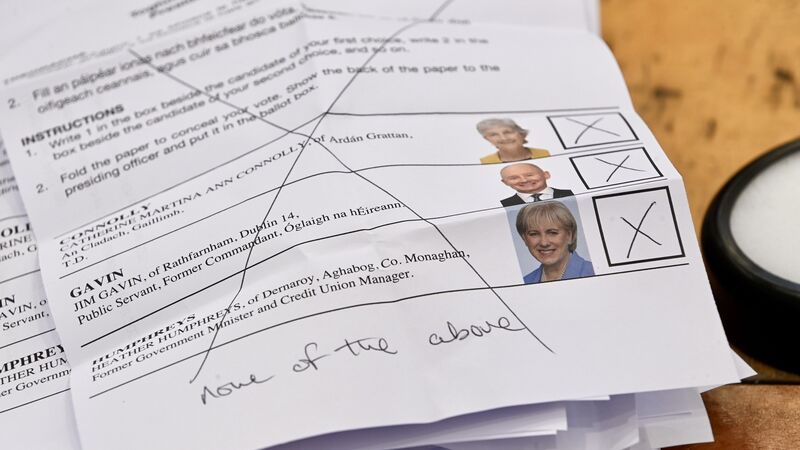Social media's 'spoil the vote' campaign helped spread disinformation, report says

A spoiled vote at the Presidential election found at Mallow GAA complex on the morning of counting. The groups said while discussing spoiling your vote is not a threat to election integrity, images showing explicit forms of hatred on spoiled ballots circulated online. File picture: Larry Cummins
The “spoil the vote” campaign on social media facilitated the spread of election disinformation, anti-migrant and anti-LGBTQ+ hate, while candidates faced a slew of personal attacks online during the presidential campaign, a new report has found.
An investigation from the Institute for Strategic Dialogue and Hope and Courage Collective said, while a legitimate democratic exercise, images of spoiled votes being shared online “allowed racist and far-right messaging to blend with broader narratives related to political disillusionment and legitimate civic protest”.














